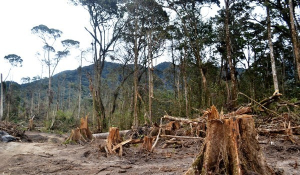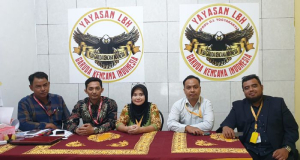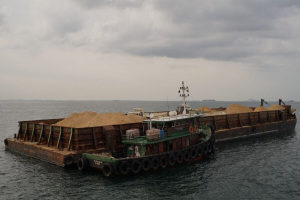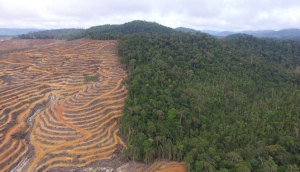Walhi criticizes Jakarta’s Rorotan RDF pollution management
The Indonesian Forum for the Environment (Walhi) has assessed that the Jakarta Provincial Administration’s measures in handling environmental pollution due to the Rorotan Refuse-Derived Fuel (RDF) Plant trial were not on target.
The forum alleged that the Jakarta administration only focused on technical aspects, such as odor removal, without resolving the root cause of pollution that has a direct impact on the health and environment of the surrounding community.
Since the RDF Plant trial began in February 2025, local residents have reported physical changes in the environment, such as pungent odors, thick black smoke wafting out of the plant’s chimney, and respiratory problems infecting dozens of residents, including children and the elderly.
Walhi emphasized that odor removal is not a solution asit does not eliminate hazardous substances in the air, but instead has the potential to create a “silent killer” that is not detected by the community.
Walhi also questioned the effectiveness of the Rorotan RDF Plant in overcoming the waste problem in Jakarta. Instead of reducing waste at its source, this facility is considered to increase dependence on waste as an energy fuel.
This is contrary to Governor Regulations No. 77/2022 and No. 102/2021, which emphasize environment-based waste management at the community unit (RW) and regional levels.
"Making waste an energy commodity means that Rorotan RDF Plant requires a continuous supply of waste. This will hinder efforts to reduce waste upstream and increase waste production in Jakarta in the long term," Walhi said in a statement on Wednesday, March 26, 2025.
Moratorium
Walhi asks the DKI Jakarta Provincial Administration to immediately impose a moratorium or temporary suspension of the Rorotan RDF Plant operational permit. It also also called for comprehensive audit on the licensing, operation, and effectiveness of RDF in waste management.
Walhi assessed that the surrounding community was not involved meaningfully in the licensing process, which was held in the absence of prior sufficient campaigns on the environmental, social, and economic impacts of the existence of Rorotan RDF Plant.
Walhi also considered RDF technology unsuitable for the characteristics of Jakarta's waste, most of which is wet and organic, so it is more effectively managed using composting methods or maggot utilization.
In addition to the environmental impact, Walhi also cited that the Rorotan RDF Plant runs contrary to the Environmental Protection and Management Law, and violates the community's right to a healthy environment as stipulated in the 1945 Constitution.
The Jakarta administratio is therefore urged to take serious steps in handling the impacts of the Rorotan RDF Plant operation, including law enforcement against alleged violations in licensing, construction, and operational trials.
"The safety of Jakarta and neighboring Bekasi residents must not be sacrificed for a project that has not been proven effective. The government must act quickly by temporarily closing Rorotan RDF Plant, conducting a thorough investigation, and finding a more sustainable waste management solution," Walhi said.
Tag
Already have an account? Sign In
-
Start reading
Freemium
-
Monthly Subscription
20% OFF$29.75
$37.19/MonthCancel anytime
This offer is open to all new subscribers!
Subscribe now -
Yearly Subscription
33% OFF$228.13
$340.5/YearCancel anytime
This offer is open to all new subscribers!
Subscribe now







